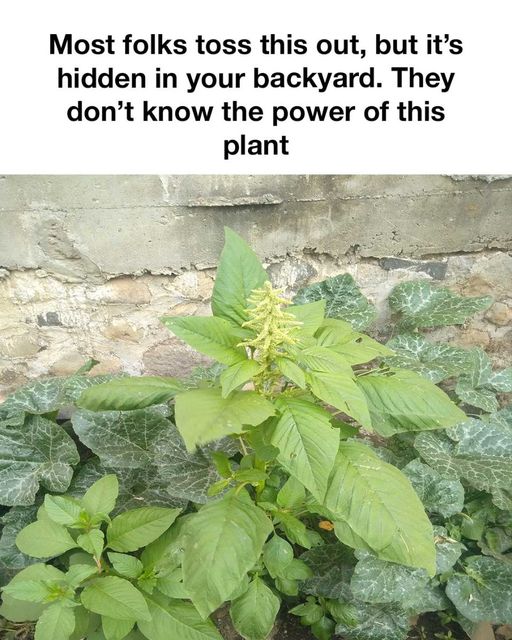ADVERTISEMENT
When you think of weeds, your mind might conjure images of unruly plants invading your garden, stealing nutrients from your prized vegetables, and generally being a nuisance. For many, pigweed falls into this category—a stubborn, prolific plant that seems to appear out of nowhere, overtaking flower beds and lawns.
However, what most people don’t realize is that pigweed, often tossed out or sprayed with herbicides, is a powerhouse plant with a wealth of benefits waiting to be unlocked.
Advertisement
What is Pigweed?
Pigweed is a common name for several species within the Amaranthus genus, with Amaranthus retroflexus (commonly known as redroot pigweed) being one of the most widespread. It is often found in fields, gardens, and disturbed soils, thriving in the heat of summer. This hardy annual can grow quickly, reaching heights of up to 6 feet, with leaves that are usually ovate and green, and small, greenish flowers that form dense, bristly spikes.
Many people view pigweed as nothing more than an invasive weed, but this unassuming plant has been used for centuries by indigenous cultures and herbalists for its nutritional and medicinal properties. In fact, pigweed is one of nature’s hidden treasures, offering benefits that most folks are unaware of.
Nutritional Powerhouse
One of the most surprising aspects of pigweed is its nutritional profile. The leaves, seeds, and stems of the plant are all edible, and they are packed with nutrients that can rival many of the vegetables you find in the supermarket.
1. Vitamin and Mineral Rich:
Pigweed leaves are a rich source of vitamins A and C, as well as calcium, iron, and magnesium. These nutrients are essential for maintaining good health, supporting everything from immune function to bone health.
2. High in Protein:
The seeds of pigweed, like those of its relative quinoa, are high in protein, containing all nine essential amino acids. This makes pigweed seeds a valuable plant-based protein source, especially for vegetarians and vegans.
3. Antioxidants:
Pigweed leaves contain various antioxidants, including beta-carotene and lutein, which are important for eye health and may help reduce the risk of chronic diseases by combating oxidative stress.
Continued on next page
ADVERTISEMENT
